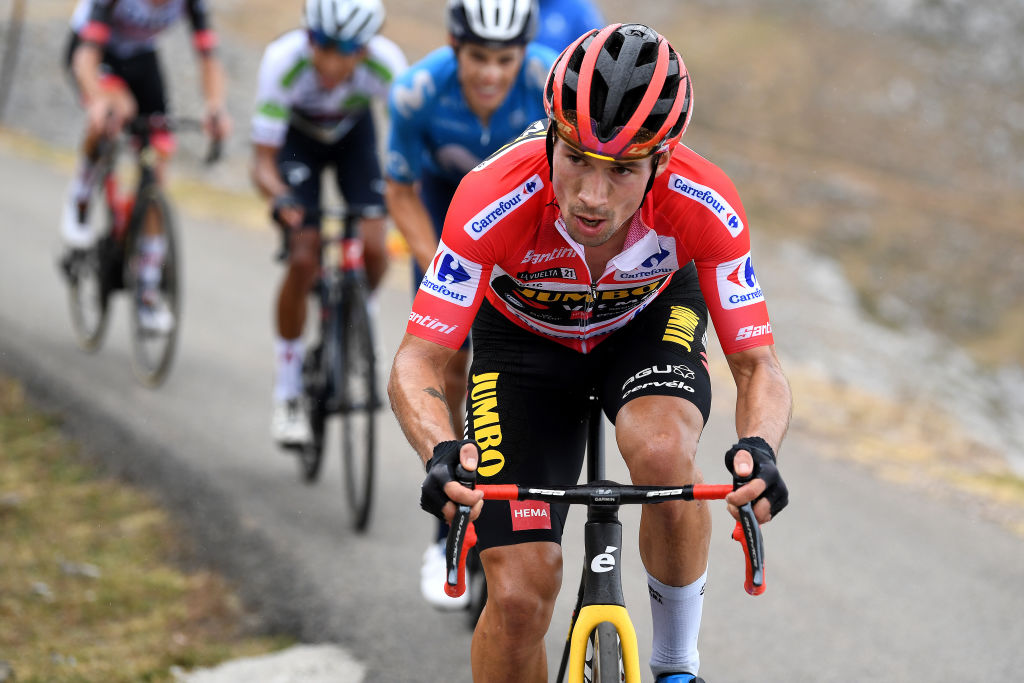2022 Vuelta a España route could include the Angliru and new Asturian mega-climb
Full route to be revealed in Madrid on December 16

The 2022 route of the Vuelta a España will finally be revealed on Thursday, resolving the considerable number of questions that remain about cycling’s third Grand Tour of the season.
As the last of the three Grand Tours to have its route published each year, the Vuelta’s key points are more or less established weeks before the curtain rises on the race presentation itself and long-standing cycling commentators Carlos de Andrés and Pedro Delgado stride on stage to unveil all the details. But this year Vuelta organisers have been successful, at least so far, in keeping the 2022 route under wraps.
Apart from the Grand Depart in the Netherlands, a tough first week of mountainous racing in the Basque Country and Cantabria in the north and a return to the traditional finish in Madrid, only a handful of other stages have been made public.
As for what will be missing from the route, for a second year running stages in the Pyrenees appear to be off the table, and a return to the northwesterly region Galicia, which played host to the finish in 2021, is also very unlikely. The same applies to a return to the far-flung Canary Islands, which has been on the cards for several decades but which appears to have been quietly forgotten for yet another year.
What is definitely part of the 2022 route, though, is a Grand Depart on foreign soil.
Two years after the pandemic put paid to its planned 2020 start in the Netherlands, the Vuelta 2022 will get underway on Friday August 19th with a medium-length team time trial in the city of Utrecht. A further two stages in the Netherlands, both flat, both look set to end in bunch sprints. A rest day immediately following the opening weekend will see the Vuelta peloton travel to the Basque Country for three hilly stages.
These will culminate with the race’s first summit finish, on stage five in the neighbouring region of Cantabria on the slopes of the Pico Jaina climb. It is nearly 13 kilometres long, but with a relatively benign average gradient of 6.4 percent. Together with the opening team time trial inUtrecht, the Pico Jaina will provide an early sort-out for the GC racers in the 2022 Vuelta.
Get The Leadout Newsletter
The latest race content, interviews, features, reviews and expert buying guides, direct to your inbox!
The subsequent GC challenges, though, will come thick and fast shortly afterwards as the Vuelta heads westwards to the Picos of Europa sierras with a weekend in Asturias. This is rumoured to include at least one monster mountain challenge and possibly a second.
Saturday could see a finish on the steep but short ascent to Los Praeres, where Simon Yates took the race lead for a second, definitive time in 2018 but there have been rumours of a return to the Angliru for that day. Then on Sunday, another major set piece battle could take place on a completely new Asturian climb, the Collado Fancuaya.
During the second week of racing the Vuelta heads south, but from this point on details become very sketchy. A punchy mid-week summit finish near Portugal at El Piornal in the rarely visited westerly region of Extremadura is likely, and there will definitely be another key climbing stage to Peñas Blancas overly looking the Mediterranean coast, an ascent last visited by the Vuelta in 2013 when Leopold Konig won the stage and Nicolas Roche took the lead.
The decisive third week though, as the Vuelta wends its way back north and to Madrid, contains even more gaps in the picture.
There will be a homage to Alejandro Valverde (Movistar) in what is very likely his final year as a racer in his home region of Murcia and a hilly stage is then planned between the nearby towns of Elche and Alicante.
Race director Javier Guillén has said there will be an individual time trial ‘at some point’ in the 2022 Vuelta, but without revealing further details.
Beyond that the only certainty is a return to Madrid, the traditional race finish on September 11th, after last year’s event finished in Santiago de Compostela. And it will be in the Spanish capital on Thursday, where the blank spaces on the Vuelta map and stage list will finally be revealed.
Alasdair Fotheringham has been reporting on cycling since 1991. He has covered every Tour de France since 1992 bar one, as well as numerous other bike races of all shapes and sizes, ranging from the Olympic Games in 2008 to the now sadly defunct Subida a Urkiola hill climb in Spain. As well as working for Cyclingnews, he has also written for The Independent, The Guardian, ProCycling, The Express and Reuters.
